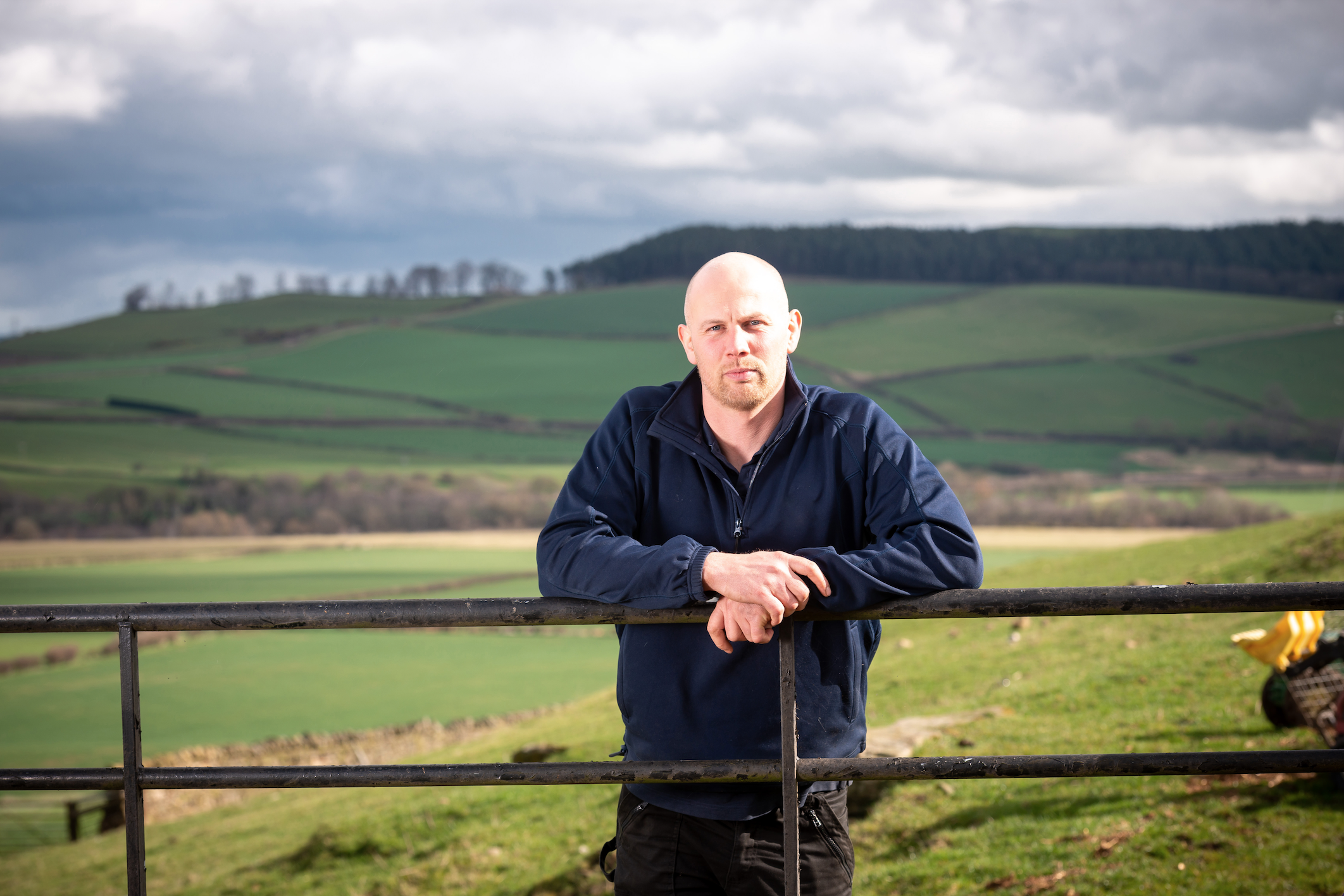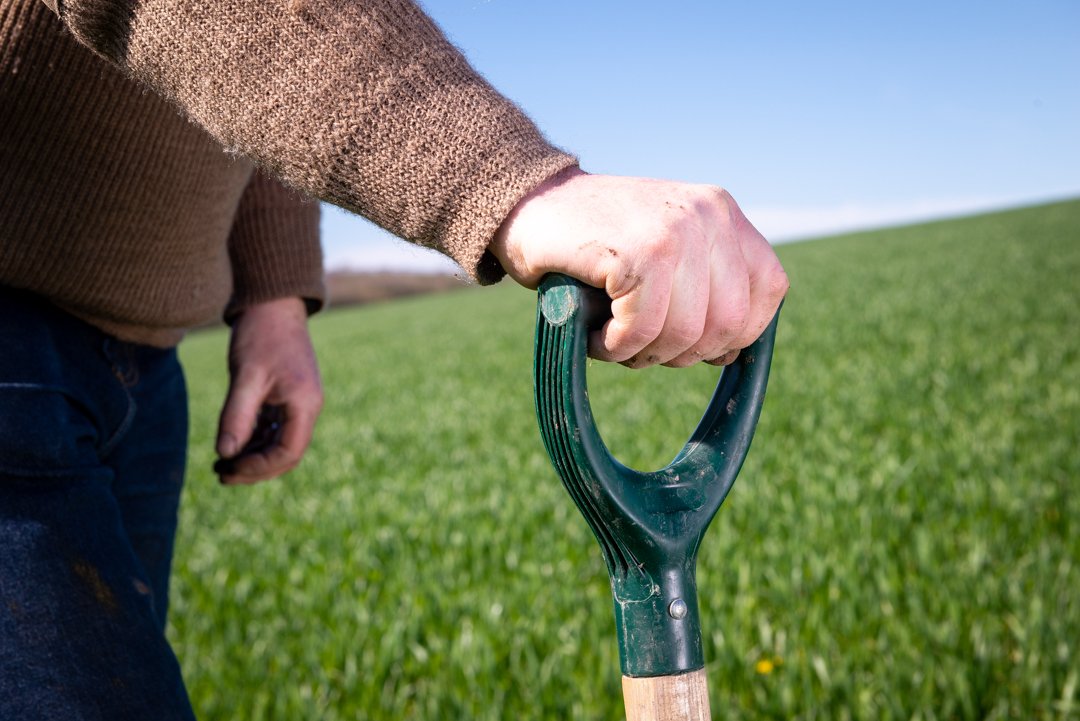Insights
Supporting the transition to regenerative farming in the Cotswolds
Regenerate Outcomes is excited to be working with a group of 25 farmers and advisers to grow their understanding of regenerative farming practices in the Cotswolds.
The Regenerative Agriculture Accelerator Programme (RAAP) is being hosted and administered by the Cotswold National Landscape team, with core funding from the Farming in Protected Landscapes grant.
It involves a 12-month intensive programme of workshops, farm walks, agronomy clinics, facilitation training and other events.
Meet your mentors: Stuart Johnson
“I wanted resilience everywhere in the business, whether that was financially or environmentally.
“I thought that if there was a slightly different way to do it and I could still make money and be more resilient and not damage the environment, then that was worth exploring.
"We're more resilient to the price changes and the weather extremes. We've reduced nearly all the variable costs, without over sacrificing yield.
“It’s made me feel really excited about the future, because there’s so much more to learn and we’ve only just begun to scratch the surface.”
Meet your mentors: Kyle Richardville from Understanding Ag
“As a farmer you tend to be pretty self-reliant, so this message of regenerating your land and becoming more reliant on your own resources and less on external inputs is very attractive.
“Our approach is to work with those who are ready and willing to make changes or experiment. And as long as we can prove that these methods are profitable and pragmatic we believe that people will start to see those results, ask questions and begin to make changes themselves.
“Regenerative agriculture has been a blessing in my life, watching this community of farmers being able to link up and talk about issues and talk about what works on their farm and what doesn't work on another. “
Agroforestry in practice
In the second of our series on agroforestry, we hear from Edd Colbert of Agroforestry Design.
Edd has lived and worked in the UK, Europe, sub-Saharan Africa and Latin America, in a variety of roles to support agroecological transitions.
He specialises in working with farmers, foresters and funders to design effective agroforestry systems.
Edd is also a key actor in the UK's agroforestry movement having organised the first Agroforestry Show, hosted by the Soil Association and Woodland Trust for the first time in Wiltshire last year.
We are hiring: Area Sales Manager
We are very excited to be recruiting an Area Sales Manager.
The successful candidate will be strongly rooted in a local farming community, either being an active farmer themselves or working in an allied industry, with a good network of nearby farmers.
You will be approaching potentially interested farms with further details of the programme, and guiding those who are interested through the relevant onboarding stages.
This is an excellent opportunity to be at the forefront of efforts to improve soil health and return value from environmental benefits to farmers, while helping the industry adapt to a low-carbon future.
An introduction to agroforestry: How trees and hedgerows can build farm resilience
In the first in our series on agroforestry, Peter Leeson, Woodland Creation Adviser for the Woodland Trust, explains how trees and hedgerows can help create resilient farms.
"I'm a real advocate for trees, but they have to add value to our farm systems and when we put a tree somewhere, we need to make sure it's in the right place,” says Peter.
“It's not just about trees being pretty, it's not just about biodiversity, although that's important. It's about how a farm can take a tree, or hedge or whatever it is and add value to the farm.”
Meet our members: Liz Genever farms beef, sheep and arable in Lincolnshire
“On any family farm, one of the biggest challenges to making change can be around communicating with everyone else.
“In the last few years I’ve really tried to change my thinking, but more importantly engage with my family to bring them along as well.
“What I’m hoping is that working with Regenerate Outcomes leads to a better way of working within the family. It is a chance for us all to have much more focus on what we want to achieve.
“Regenerate Outcomes can help with that because you are working with outside consultants and it gives the transition some structure. It is also a project which involves a lot of farmers I already know and respect.
Diversity, diversity, diversity
"I fundamentally believe that the only thing that creates soil structure is biology.
“The more biology that we have of different sorts, the more organic compounds that will come to help create that aggregate structure.”
In the latest in our Autumn and Winter Webinar Series, we were joined by Ian Gould, a director of Oakbank Game and Conservation, to focus on how increasing diversity of all living organisms can improve soil health.
Oakbank has built a great reputation working with farmers and landowners to make the best use of agri-environment schemes to improve wildlife habitats.
Meet our members: Joe and Rachel Henry
“Regenerative farming is a term that people use a lot now but that style of farming isn’t brand new by any means.
“It’s the way we’ve always farmed and our methods were probably just designed around what we wanted to do and we learned things along the way.
"I love the fact that what's good for the environment is good for our stock and is also good for our bank balance at the same time.
“If you look after one of them then you'll find the other two come as well.
”That's just brilliant. As soon as you know that, there's no turning back.”
Understanding carbon: The essentials of the carbon credit market
In the last of our series explaining how carbon credits can create additional income as part of a resilient and profitable farm business, Bill Goldie - sales adviser at environmental risk management consultant Redshaw Advisers - talks about the fundamentals of the carbon market.
As Bill explains, there are two major markets for carbon credits: The compliance market and the voluntary market.
“Regenerative agriculture, if done properly, can remove huge volumes of carbon from the atmosphere and as such generate huge volumes of removal credits,” says Bill.
Nicole Masters on the Soilmentor app: What we learned
For all regenerative farmers, soil health is one of the key indicators of their progress. Gauging its ongoing improvement - or decline - is essential.
To help with this process, Regenerate Outcomes gives our member farms access to the Soilmentor app, which allows you to understand what healthy soil looks like on your farm by monitoring key data and gathering observations over time.
Last month over 100 people registered to attend our webinar with world-recognised agroecologist Nicole Masters, as she went through real-world data from some of our member farms and how this could be used to guide their regenerative farming practices.
Understanding carbon: Explaining the carbon market for farmers
At Regenerate Outcomes we work with you to make your transition to regenerative food production as efficient, straightforward and profitable as possible.
We run regenerative farming training and online workshops, alongside carbon baselining and monitoring to generate high quality carbon credits with Verra, the world’s leading carbon credit registry.
In the second of our series of insights into the role of carbon in regenerative farming, our Chief Scientific Officer, Dr Matt Jordon, explains the basics of generating carbon credits and unpicks some of the jargon around the subject.
Join us for our autumn and winter webinar series
This autumn and winter, Regenerate Outcomes is running a series of webinars exploring how to further regenerative activities on your farm.
Join us to hear from our mentoring partners at Understanding Ag and other leading regenerative voices.
This webinar series forms part of the benefits we offer for our member farms, but selected webinars are open to all.
‘A process farmers can trust’: Meet Annie from Agricarbon
Regenerate Outcomes works with Agricarbon to generate internationally recognised carbon credits which can be sold to create additional revenue.
We caught up with co-founder Annie Leeson to find out more about Agricarbon’s approach and how it ensures the carbon credits we produce are of the highest value to both carbon buyers and our farmer members.
Agricarbon achieve this through the use of an industrial scale, robotic processing facility, which guarantees a high degree of accuracy in their soil sample analysis and a high sample throughput.
Understanding soil carbon: How plants and animals increase carbon stocks in healthy soils
Last month Regenerate Outcomes brought together a group of experts to answer your questions on the role of carbon in regenerative farming and how it can be used to generate income through the sale of high quality carbon credits.
Over the coming weeks we will be following up with a series outlining some of the key information presented by the panel.
First up is Blain Hjertass, from our mentoring partner Understanding Ag, who has been practising regenerative farming in Saskatchewan, Canada, for 20 years.
Webinar: Nicole Masters on using the Soilmentor app to track regenerative progress
On September 27 from 7pm to 8:15pm, globally recognised agroecologist and author Nicole Masters will be joining us to share her knowledge of regenerative practice and how Soilmentor can be used as a tool for farmers.
Soilmentor allows you to monitor soil health using simple metrics. Our mentoring team also use the information collected on the app to help you address day-to-day farming challenges.
The role of trees in regenerative farming
Regenerate Outcomes are sponsoring the inaugural Agroforestry Show, on September 6 and September 7, at Eastbrook Farm, Wiltshire.
The event will bring together those working in farming and forestry to bridge the gap in knowledge, support and skills for the good of everyone involved.
September 7 will include a panel discussion involving our Chief Scientific Officer Matt Jordon, alongside Kyle Richardville from our mentoring partner Understanding Ag and Essex agroecological farmer George Young.
Answering your questions on carbon
This summer we are working with our expert partners to help answer your questions around carbon.
On Wednesday, August 23, from 7pm to 8.15pm we’re inviting you to the next in our series of free webinars: Confused about Carbon?
Join us to learn how soil carbon can improve farm resilience and generate additional revenue for your business.
Watch our webinar: Rest, recovery and rooting depth
In our webinar Rest, recovery and rooting depth webinar Dr Allen Williams, from our mentoring partner Understanding Ag, explains that while plants benefit from being given time to recover physically and physiologically from grazing, they also need periods of rest.
Allen also discusses the importance of taking a disruptive approach to adaptive grazing and the huge positive effects this can have on rooting depth and soil health.
Summer Farm Walk Series: Generating revenue from healthy soils
This summer we’re hosting two farm walks with our programme members, giving you the chance to learn more about generating income from healthy soil.
Each event will include an overview of Regenerate Outcomes and a farm walk where you will be able to see regenerative practices in action. Kyle Richardville, from our mentoring partner Understanding Ag, will unpack the principles of soil health and how farms can use key indicators to inform their management.




















